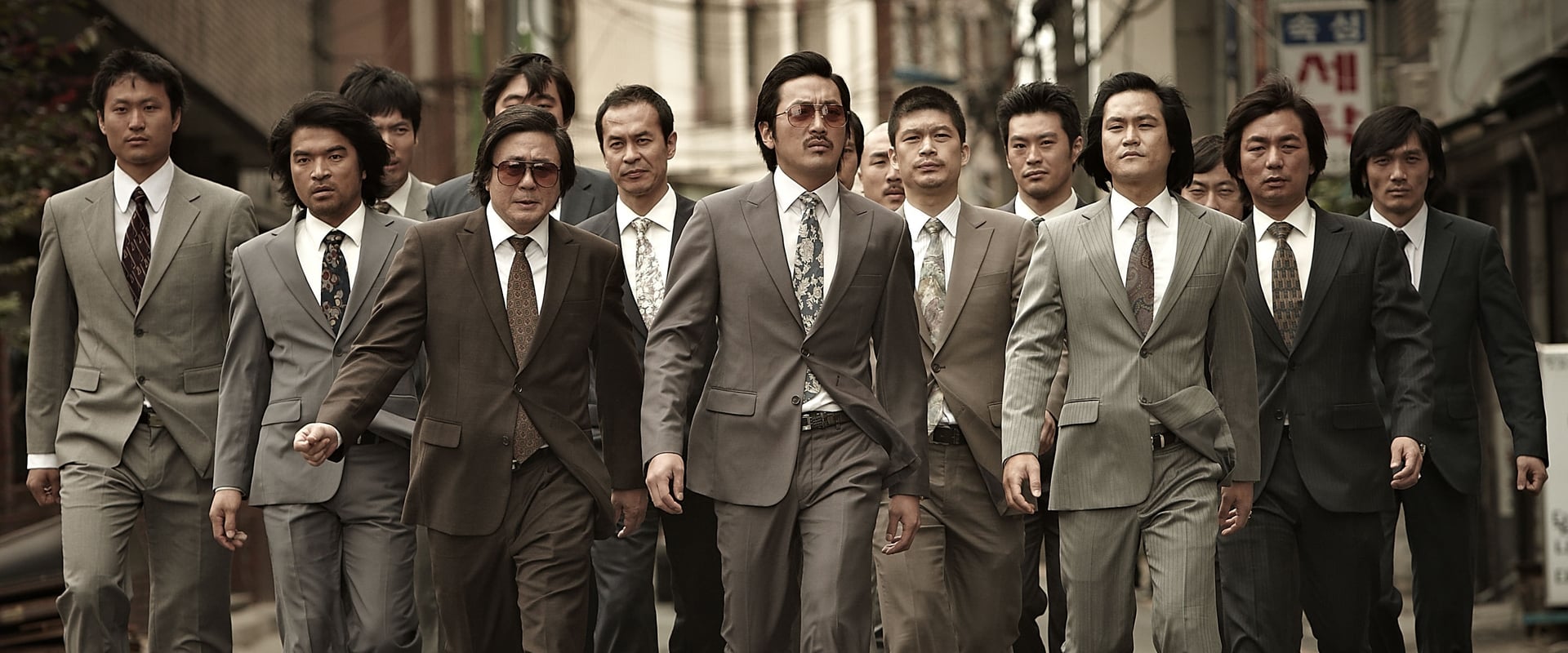If you’ve ever felt the jolt of electricity that comes with the first few minutes of a genuinely promising crime film—where the air thickens with possibility and dread—you’ll know something of the elation I felt plunging into Yoon Jong-bin’s Nameless Gangster: Rules of the Time. Here is a movie steeped in all the genre trappings: the smoky taverns and smoke-filled back rooms of Busan in the ‘80s and ‘90s, corruption so foul you can almost taste it, men in sharp suits who wield their loyalty like a battering ram—except this time, refreshingly, nothing comes at you in the simple, blunt-force trauma of a cheap triad flick.
This isn’t a movie that caterwauls and stomps its feet looking for your attention; it earns it by unfolding like an elegant, poisonous flower. At its core is Choi Ik-Hyun—Choi Min-sik, in a performance pitched somewhere between squalor and swagger—thrust headlong from civil servant to criminal kingmaker, careening through the underworld like a man careening down an unlit alley, half-terrified, half-excited to see where he’ll land. Choi’s Ik-Hyun isn’t your standard tough guy. He’s the brains, not the brawn—the hustler, the worm, the survivor. He has a stomach for rot, not just violence, and every scene is shaded with moral ambiguity that never demands your sympathy but keeps you, nervously, on his side anyway.
And then there’s Ha Jung-woo, equal parts brute and brother, his loyalty radiating out in the early stretches before giving way to a mounting paranoia that is as credible as it is tragic. Where most gangster movies give you archetypes, Nameless Gangster gives you the illusion of family—and then unspools it strand by strand, until all you’re left with is a sickening realization about the cost of survival. Their friendship, which tightens into an alliance and then unravels into rivalry, becomes the real engine of tension. These aren’t two-dimensional mafia bros with golden hearts buried under gristle—they’re flesh-and-blood men shackled to their own ambition.
Director Yoon Jong-bin doesn’t rush you, and thank God for that. His film is paced with the patience of a loan shark waiting for your debts to come due. For audiences primed on Hong Kong-style bloodletting and split-second betrayals, this might seem glacial. But what Yoon understands—and exploits deliciously—is that real power is won not in gunfights but in quiet rooms, with whispered threats and exchanged favors, and the slow, suffocating realization that everything in this world is for sale—including one’s conscience. When violence comes, it is never for cheap effect. Instead, it bubbles up and overflows, shaped by the pressure of countless small humiliations.
It takes a special kind of craftiness to invoke the echoes of Scorsese and Coppola while remaining so utterly, adamantly Korean. If you know your way around Hong Kong triad movies, you’ll hear a familiar refrain—the uneasy brotherhood, the treacherous climb, the knife’s edge between honor and annihilation—but Yoon swaps out the fireworks for something smokier, slyer, and more political. Nameless Gangster quietly re-routes the genre away from testosterone and mayhem, into the muck of back-room deals and boardroom betrayal. It’s a tale where politics is inseparable from mob life, where the biggest muscles in the room may belong to the man quietly rewriting the rules behind the scenes.
Choi Min-sik deserves a shrine for his performance. Where he once raged and tore his way through Oldboy and I Saw the Devil, here he contracts, coils inward—his Ik-Hyun is a rabbit in wolf’s clothing, pitiful yet terrifying in his opportunism. You find yourself oscillating madly between pity and disgust, as Ik-Hyun wangles, ingratiates, and outlasts. Ha Jung-woo, for his part, crafts a mob boss who’s as heartbreaking in his vulnerability as he is menacing with a baseball bat. The supporting cast bristles with character; Cho Jin-woong, especially, turns his role as a rival boss into a master class in offhanded threat, and a young Ma Dong-seok slips in much-needed comic relief—but even his jokes are shaded in desperation.
Stylistically, Yoon’s direction is taut as a snare drum. Every shot lingers just long enough for the underlying tension to curdle, the grey-washed Busan skyline reflecting back all that’s ugly and beautiful and broken in these men. The deliberate pace is not a flaw—it’s an asset, a necessary condition for the unease to settle into your bones.
Does the film lack the pyrotechnics of its genre cousins? Perhaps—but what you trade in shootouts you gain in authenticity and resonance. The showdowns here are not for spectacle but survival, and the betrayals—when they come—don’t explode, they fester. Nameless Gangster pulses with an authenticity that is rare in the genre; it is a document of power and ambition as they look—not as we wish them to appear. And its political bent—its ruthless dissection of how the state and the mob are two heads on the same dog—lends a flavor more acidic and real than most western tales dare attempt.
So, yes, this is a gangster film—but it is also a searing social fable, a parable about the universality of ambition and the squirming self-justifications that drive men to monstrous acts. It’s easy to see why it stands beside the titans of the Korean wave. Like Choi Ik-hyun after a long night out—beaten, battered, but somehow, impossibly, still standing—Nameless Gangster is the kind of film that worms its way under your skin and stays there, throbbing. For fans of the genre, it’s essential viewing—a reminder that even the oldest stories can still surprise us, provided they’re told with enough guts, and a little brains.
In a crowd of pretenders, Nameless Gangster has the nerve to play for keeps.


